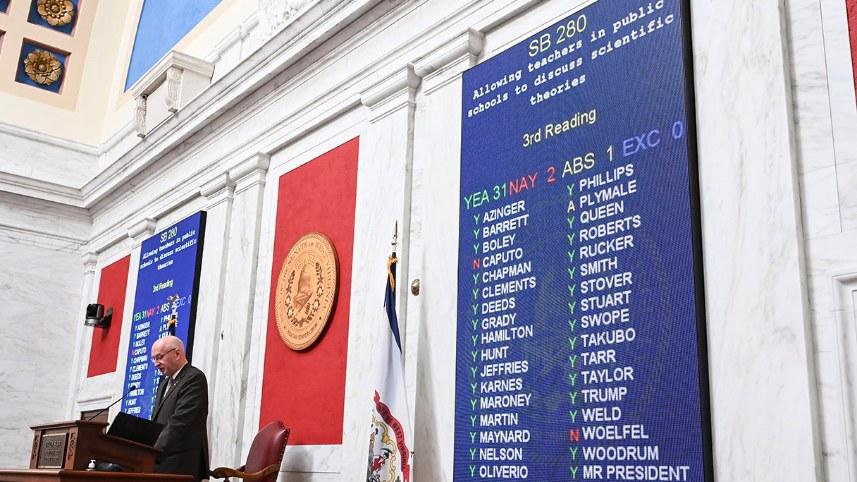Writing in the Charleston Gazette-Mail (April 4, 2024), the biologist Herman L. Mays Jr. criticized West Virginia's new cryptocreationist law.
The new law provides that "[n]o public school board, school superintendent, or school principal may prohibit a public school classroom teacher from discussing or answering questions from students about scientific theories of how the universe and/or life came to exist." The bill's lead sponsor, Amy Grady (R-District 4), declared that it would protect the teaching of "intelligent design," according to West Virginia Watch (January 23, 2024), although a federal court found "intelligent design" not to qualify as a scientific theory in Kitzmiller v. Dover in 2005.
"A problem with SB 280 is its deliberate ambiguity, an ambiguity designed to hide the imposition of religion in the science classroom from constitutional accountability," Mays explained. "The National Science Teaching Association recognized this ambiguity in a Feb. 13 letter [PDF] to members of the West Virginia Legislature stating that intelligent design is not a scientific proposition and that, 'Enacting SB 280 would engender significant confusion about what West Virginia's public school teachers are allowed to teach.'”
Mays continued, "Promoting religion seldom ends well for school districts, even in West Virginia. In 2022, $225,000 was paid in a settlement of a five-year-long case in Mercer County over Bible classes taught in public schools. In 2023, the Cabell County School Board settled a case involving a religious assembly resulting in $175,000 in attorney fees and mandatory training for teachers and staff." He warned that attempts to teach "intelligent design" under the new law would similarly "place districts in legal and financial jeopardy."
Finally, Mays observed, "Bills like SB 280 are an embarrassment and likely will discourage high-paying, high-tech industries reliant on an educated workforce from moving to West Virginia. Ultimately, children in our state will pay a price. In a state with the third-lowest teacher pay in the nation, where students rank well below national averages in mathematics, reading, writing and science, and among the lowest percentage of residents with college degrees, we cannot afford to dilute public education with stealthy religious indoctrination."
Mays is associate professor of biological sciences at Marshall University, a public research institution in Huntington, West Virginia.


